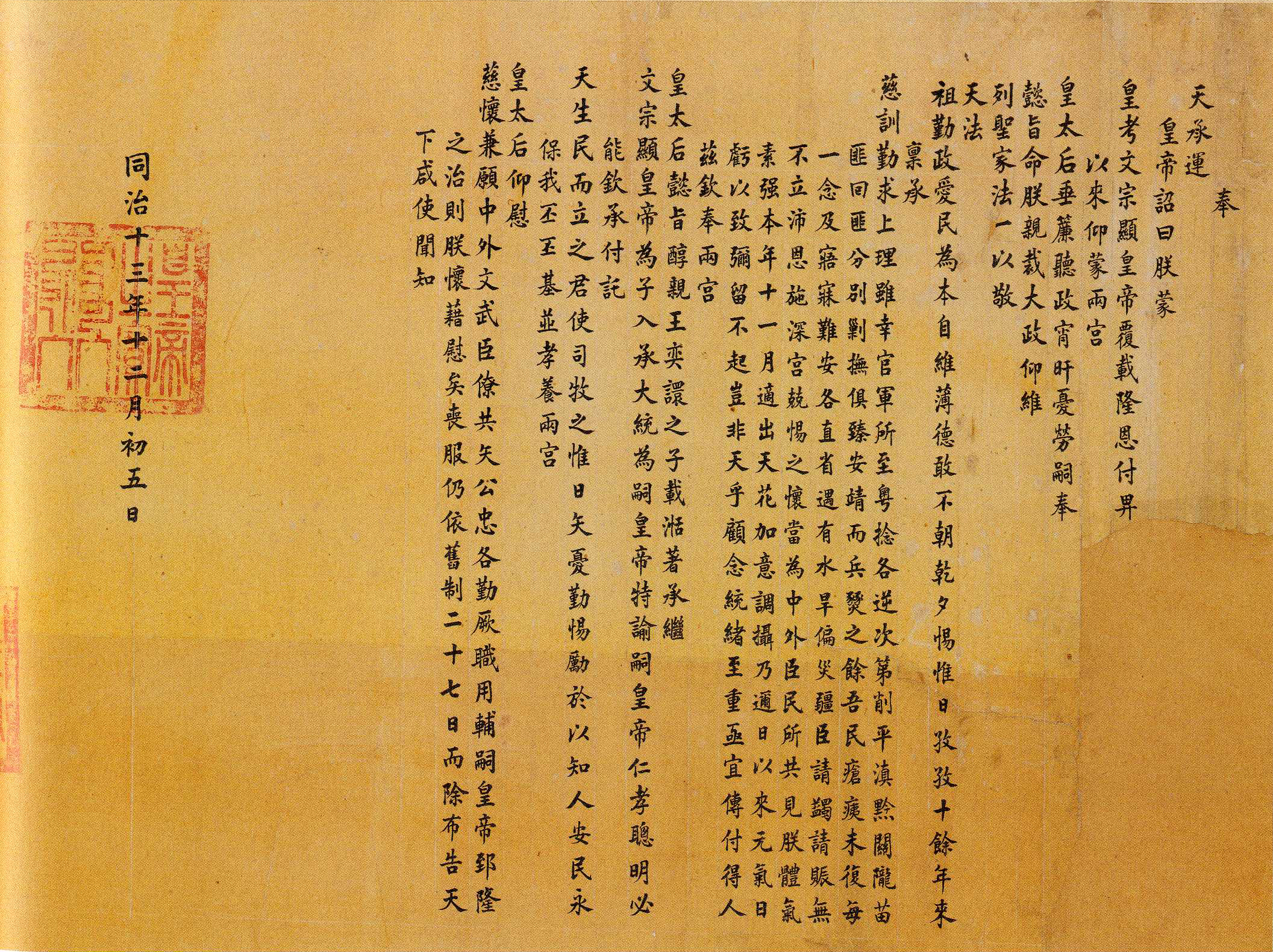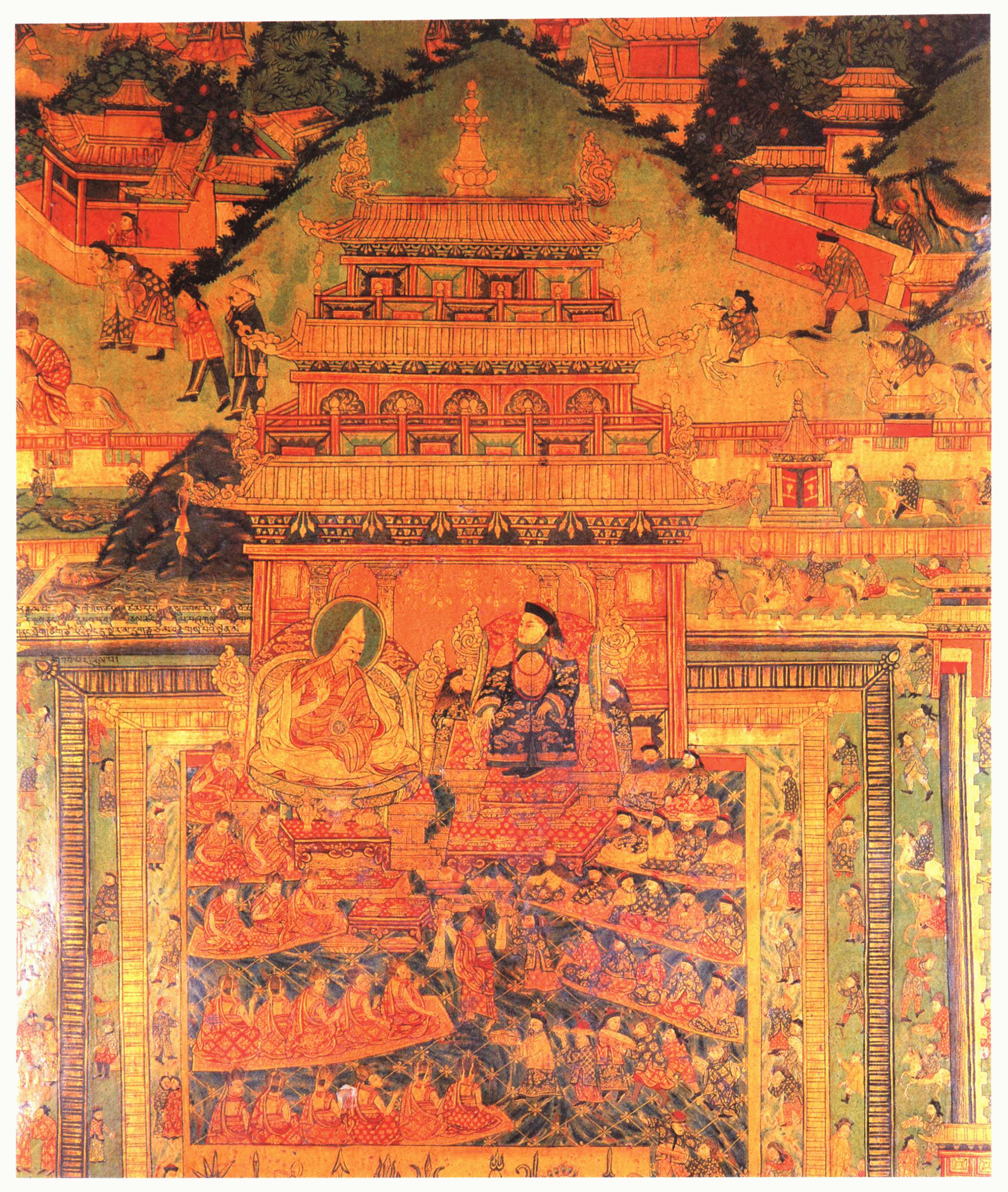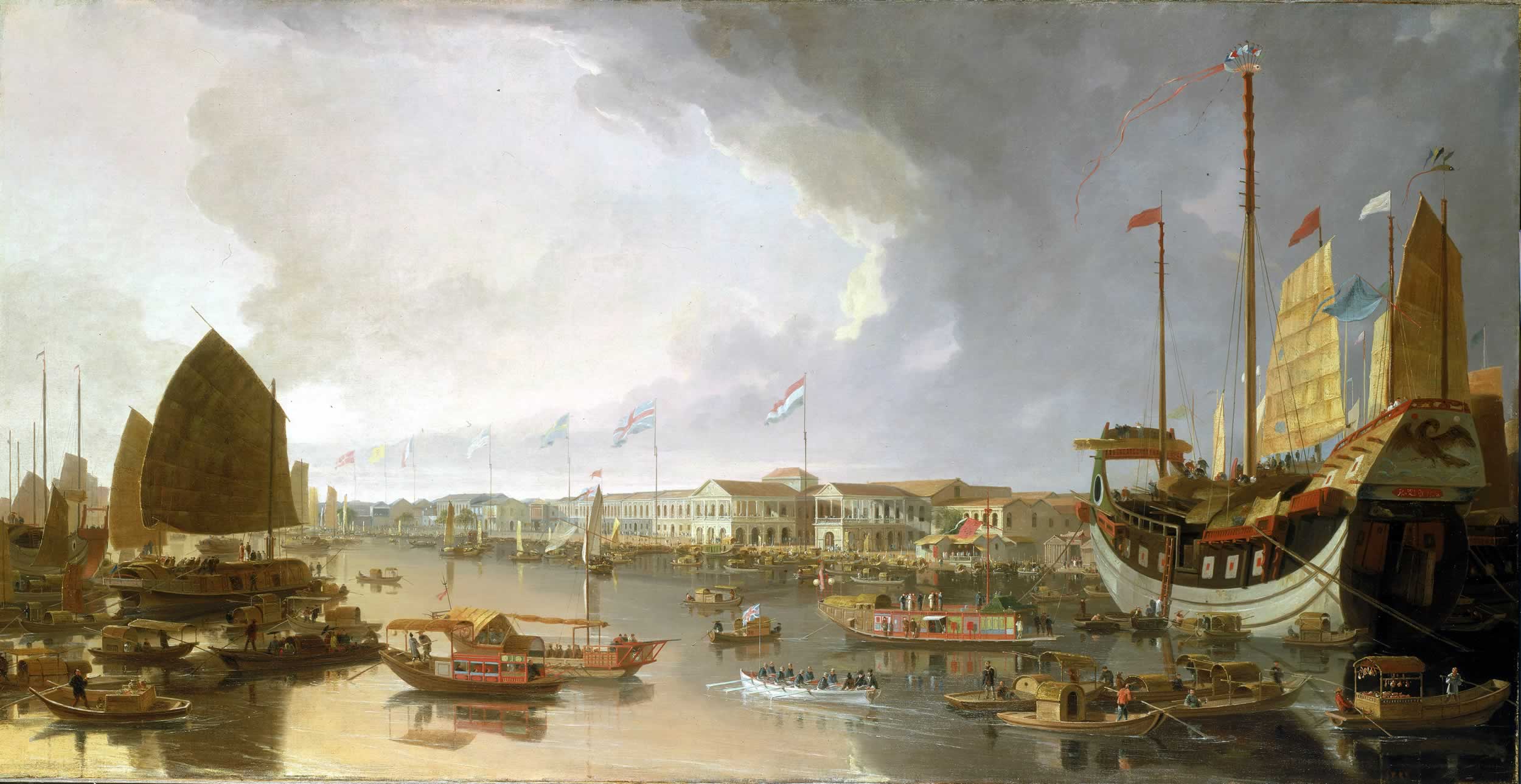|
Imperial Edict Of The Abdication Of The Qing Emperor
The Imperial Edict of the Abdication of the Qing Emperor (; lit. "Xuantong Emperor's Abdication Edict") was an official decree issued by the Empress Dowager Longyu on behalf of the six-year-old Xuantong Emperor, the last emperor of the Qing dynasty of China, on 12 February 1912, as a response to the Xinhai Revolution. The revolution led to the self-declared independence of 13 southern Chinese provinces and the subsequent peace negotiation between the rest of Qing China and the collective of the southern provinces. The issuance of the Imperial Edict marked the end of the over 200-year rule of the Qing dynasty, and the era of Chinese imperial rule, which lasted 2,132 years. Furthermore, the Imperial Edict established the Republic of China as the sole successor state to the Qing dynasty and provided the legal basis for the Republic of China to inherit all Qing territories, including China proper, Manchuria, Mongolia, Xinjiang, and Tibet. Background The Qing dynasty was procl ... [...More Info...] [...Related Items...] OR: [Wikipedia] [Google] [Baidu] |
Edict
An edict is a decree or announcement of a law, often associated with monarchies, but it can be under any official authority. Synonyms include "dictum" and "pronouncement". ''Edict'' derives from the Latin edictum. Notable edicts * Telepinu Proclamation, by Telipinu, king of the Hittites. Written c. 1550 BC, it helped archeologists to construct a succession of Hittite Kings. It also recounts Mursili I's conquest of Babylon. * Edicts of Ashoka, by the Mauryan emperor, Ashoka, during his reign from 272 BC to 231 BC. * Reform of Roman Calendar, Julian Calendar, took effect on 1 January AUC 709 (45 BC). * Edictum perpetuum (129), an Imperial revision of the long-standing Praetor's Edict, a periodic document which first began under the late Roman Republic (c. 509–44 BC). * Edict on Maximum Prices (301), by Roman Emperor Diocletian. It attempted to reform the Roman system of taxation and to stabilize the coinage. * Edict of Toleration (311), by Galerius before hi ... [...More Info...] [...Related Items...] OR: [Wikipedia] [Google] [Baidu] |
Tibet Under Qing Rule
Tibet under Qing rule refers to the Qing dynasty's rule over Tibet from 1720 to 1912. The Qing rulers incorporated Tibet into the empire along with Qing dynasty in Inner Asia, other Inner Asia territories, although the actual extent of the Qing dynasty's control over Tibet during this period has been the subject of political debate. The Qing called Tibet a ''fanbu'', ''fanbang'' or ''fanshu'', which has usually been translated as "vassal", "vassal state", or "borderlands", along with areas like Xinjiang and Mongolia. Like the earlier Yuan dynasty, the Manchus of the Qing dynasty exerted military and administrative control over Tibet, while granting it a degree of political autonomy.Starting from extablishment of Imperial Monument to the Pacification of Xizang, term Xizang was officially used to replace older names to designate the region. By 1642, Güshi Khan of the Khoshut Khanate had reunified Tibet under the spiritual and temporal authority of the 5th Dalai Lama of the Gelug sc ... [...More Info...] [...Related Items...] OR: [Wikipedia] [Google] [Baidu] |
Han Chinese
The Han Chinese, alternatively the Han people, are an East Asian people, East Asian ethnic group native to Greater China. With a global population of over 1.4 billion, the Han Chinese are the list of contemporary ethnic groups, world's largest ethnic group, making up about 17.5% of the world population. The Han Chinese represent 91.11% of the population in China and 97% of the population in Taiwan. Han Chinese are also a significant Overseas Chinese, diasporic group in Southeast Asian countries such as Thailand, Malaysia, and Indonesia. In Singapore, people of Han Chinese or Chinese descent make up around 75% of the country's population. The Han Chinese have exerted a primary formative influence in the development and growth of Chinese civilization. Originating from Zhongyuan, the Han Chinese trace their ancestry to the Huaxia people, a confederation of agricultural tribes that lived along the middle and lower reaches of the Yellow River in the north central plains of Chin ... [...More Info...] [...Related Items...] OR: [Wikipedia] [Google] [Baidu] |
Wuchang District
Wuchang is one of 13 urban districts of the prefecture-level city of Wuhan, the capital of Hubei Province, China. It is the oldest of the three cities that merged into modern-day Wuhan, and stood on the right (southeastern) bank of the Yangtze River, opposite the mouth of the Han River. The two other cities, Hanyang and Hankou, were on the left (northwestern) bank, separated from each other by the Han River. The name "Wuchang" remains in common use for the part of urban Wuhan south of the Yangtze River. Administratively, however, it is split between several districts of the City of Wuhan. The historic center of Wuchang lies within the modern Wuchang District, which has an area of and a population of 1,102,188. Other parts of what is colloquially known as Wuchang are within Hongshan District (south and south-east) and Qingshan District (north-east). Presently, on the right bank of the Yangtze, it borders the districts of Qingshan (for a very small section) to the north ... [...More Info...] [...Related Items...] OR: [Wikipedia] [Google] [Baidu] |
Overseas Chinese
Overseas Chinese people are Chinese people, people of Chinese origin who reside outside Greater China (mainland China, Hong Kong, Macau, and Taiwan). As of 2011, there were over 40.3 million overseas Chinese. As of 2023, there were 10.5 million people living outside mainland China who were born in mainland China. Overall, China has a low percent of population List of sovereign states by immigrant and emigrant population, living overseas. Terminology () refers to people of Chinese citizenship residing outside of either the China, PRC or Republic of China, ROC (Taiwan). The government of China realized that the overseas Chinese could be an asset, a source of foreign investment and a bridge to overseas knowledge; thus, it began to recognize the use of the term Huaqiao. Ching-Sue Kuik renders in English as "the Chinese wikt:sojourner, sojourner" and writes that the term is "used to disseminate, reinforce, and perpetuate a monolithic and essentialist Chinese identity" by both t ... [...More Info...] [...Related Items...] OR: [Wikipedia] [Google] [Baidu] |
Prince Qing's Cabinet
The Cabinet of Prince Qing () was the first cabinet of the Qing dynasty and of China, formed as part of the Qing state's reforms to create a constitutional monarchy in the early 20th century. It was active from 8 May to 1 November 1911, led by the Prime Minister of the Imperial Cabinet, Yikuang (Prince Qing). It initially consisted of thirteen members, of which nine were Manchus (seven of whom were from the imperial clan) while only four were Han Chinese. As a result, it remained unpopular among the people and was nicknamed the "Princes' Cabinet" or "Imperial Family Cabinet"() by its critics. History The Imperial Cabinet was formed as a result of the constitutional reforms, the New Policies, being enacted in China in the early 20th century. It replaced the Grand Council, although it was unpopular and was described as "the old Grand Council under the name of a cabinet, autocracy under the name of constitutionalism." Members of the provisional assemblies, which were formed in 1 ... [...More Info...] [...Related Items...] OR: [Wikipedia] [Google] [Baidu] |
Constitutional Monarchy
Constitutional monarchy, also known as limited monarchy, parliamentary monarchy or democratic monarchy, is a form of monarchy in which the monarch exercises their authority in accordance with a constitution and is not alone in making decisions. Constitutional monarchies differ from absolute monarchies (in which a monarch is the only decision-maker) in that they are bound to exercise powers and authorities within limits prescribed by an established legal framework. A constitutional monarch in a parliamentary democracy is a hereditary symbolic head of state (who may be an emperor, king or queen, prince or grand duke) who mainly performs representative and civic roles but does not exercise executive or policy-making power. Constitutional monarchies range from countries such as Liechtenstein, Monaco, Morocco, Jordan, Kuwait, Bahrain and Bhutan, where the constitution grants substantial discretionary powers to the sovereign, to countries such as the United Kingdom and other Com ... [...More Info...] [...Related Items...] OR: [Wikipedia] [Google] [Baidu] |
Chinese Nationalism
Chinese nationalism is a form of nationalism that asserts that the Chinese people are a nation and promotes the cultural and national unity of all Chinese people. According to Sun Yat-sen's philosophy in the Three Principles of the People, Chinese nationalism is evaluated as Zhonghua minzu, multi-ethnic nationalism, which should be distinguished from Han nationalism or local ethnic nationalism. Modern Chinese nationalism emerged in the late Qing dynasty (1644–1912) in response to China's Face (sociological concept)#Chinese 臉面 and 面子, humiliating defeat at the end of the First Sino-Japanese War and the invasion and pillaging of Beijing by the Eight-Nation Alliance. In the aftermath of both events, China was forced to pay financial reparations and grant special privileges to foreigners. The nationwide image of China as a superior Celestial Empire, which was located at the center of the universe, was shattered, and last-minute efforts to modernize the old system were ... [...More Info...] [...Related Items...] OR: [Wikipedia] [Google] [Baidu] |
First Sino-Japanese War
The First Sino-Japanese War (25 July 189417 April 1895), or the First China–Japan War, was a conflict between the Qing dynasty of China and the Empire of Japan primarily over influence in Joseon, Korea. In Chinese it is commonly known as the Jiawu War. After more than six months of unbroken successes by Japanese land and naval forces and the loss of the ports of Lüshunkou (Port Arthur) and Weihaiwei, the Qing government sued for peace in February 1895 and signed the Unequal treaties, unequal Treaty of Shimonoseki two months later, ending the war. In the late 19th century, Korea remained one of China's tributary states, while Japan viewed it as a target of imperial expansion. In June 1894, the Qing government, at the request of the Korean emperor Gojong of Korea, Gojong, sent 2,800 troops to aid in suppressing the Donghak Peasant Revolution. The Japanese considered this a violation of the 1885 Convention of Tientsin, and sent an expeditionary force of 8,000 troops, which la ... [...More Info...] [...Related Items...] OR: [Wikipedia] [Google] [Baidu] |
Joseon
Joseon ( ; ; also romanized as ''Chosun''), officially Great Joseon (), was a dynastic kingdom of Korea that existed for 505 years. It was founded by Taejo of Joseon in July 1392 and replaced by the Korean Empire in October 1897. The kingdom was founded following the aftermath of the overthrow of Goryeo in what is today the city of Kaesong. Early on, Korea was retitled and the capital was relocated to modern-day Seoul. The kingdom's northernmost borders were expanded to the natural boundaries at the rivers of Yalu River, Amnok and Tumen River, Tuman through the subjugation of the Jurchen people, Jurchens. During its 500-year duration, Joseon encouraged the entrenchment of Korean Confucianism, Confucian ideals and doctrines in Korean society. Neo-Confucianism was installed as the new state's ideology. Korean Buddhism, Buddhism was accordingly discouraged, and occasionally Buddhists faced persecution. Joseon consolidated its effective rule over the Korean peninsula and saw the he ... [...More Info...] [...Related Items...] OR: [Wikipedia] [Google] [Baidu] |
First Opium War
The First Opium War ( zh, t=第一次鴉片戰爭, p=Dìyīcì yāpiàn zhànzhēng), also known as the Anglo-Chinese War, was a series of military engagements fought between the British Empire and the Chinese Qing dynasty between 1839 and 1842. The immediate issue was the Chinese enforcement of their ban on the opium trade by seizing private opium stocks from mainly British merchants at Guangzhou (then named ''Canton'') and threatening to impose the death penalty for future offenders. Despite the opium ban, the British government supported the merchants' demand for compensation for seized goods, and insisted on the principles of free trade and equal diplomatic recognition with China. Opium was Britain's single most profitable commodity trade of the 19th century. After months of tensions between the two states, the Royal Navy launched an expedition in June 1840, which ultimately defeated the Chinese using technologically superior ships and weapons by August 1842. The British ... [...More Info...] [...Related Items...] OR: [Wikipedia] [Google] [Baidu] |
British Hong Kong
Hong Kong was under British Empire, British rule from 1841 to 1997, except for a Japanese occupation of Hong Kong, brief period of Japanese occupation during World War II from 1941 to 1945. It was a crown colony of the United Kingdom from 1841 to 1981, and a British Dependent Territory, dependent territory from 1981 to 1997. The colonial period began with the British occupation of Hong Kong Island under the Convention of Chuenpi in 1841 of the Victorian era, and ended with the handover of Hong Kong to the China, People's Republic of China in July 1997. In accordance with Art. III of the Treaty of Nanking of 1842, signed in the aftermath of the First Opium War, the island of Hong Kong was ceded in perpetuity to Great Britain. It was established as a Crown colony in 1843. In 1860, the British expanded the colony with the addition of the Kowloon Peninsula and was further extended in 1898 when the British obtained Convention for the Extension of Hong Kong Territory, a 99-year lease ... [...More Info...] [...Related Items...] OR: [Wikipedia] [Google] [Baidu] |








